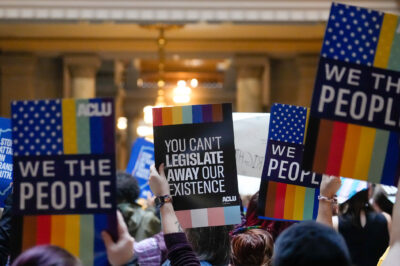Today, I am blogging from Geneva, Switzerland at the meeting of the United Nations Committee on the Elimination of Racial Discrimination (CERD). My name is Harvey Grossman and I am the legal director of the ACLU of Illinois and a member of the team of lawyers which the National ACLU has brought to Geneva to speak to the CERD about the issue of racial discrimination in the U.S.
Just minutes ago, Akif Rahman of Wheaton, Illinois testified before the CERD. In moving testimony delivered to a packed hearing room, Akif told the committee of the trauma that he and his family repeatedly had suffered at the hands of agents of Customs and Border Protection and Immigration and Customs Enforcement of the U.S. Department of Homeland Security. As the room stilled, Akif, who is a U.S. born citizen and the lead plaintiff in a federal class action suit brought by the ACLU of Illinois, described one border stop that occurred when he, his wife and two young children were returning to the U.S. by car after visiting family in Toronto, Canada. Akif told of being separated from his family, frisked, interrogated and shackled to a chair for over three hours. The detention lasted for over six hours. During this time Akif’s wife Masooda and their children were held in an area without sanitary facilities and were cut off from proper food for their children. They also were not allowed to use the phone to call relatives who were awaiting their return to Chicago.
Akif testified that this was only one of six stops to which he had been subjected and that since he had filed his lawsuit, he has been joined by other U.S. citizens who are Arab, Muslim and South Asian who have suffered scores of unjustified and injurious detentions when they try to re-enter the country.
Akif’s suit charges that the FBI and DHS maintain a Terroist Screening Database that results in mistakenly identifying people who are not on the list as terrorists. The database also includes the names of people who the government over classifies as security risks and consequently subject to inappropriate conditions of detention. Akif urged the CERD to require the U.S. to develop new procedures to insure that the system does not continue to result in the unfair treatment of U.S. citizens from the country’s Arab, Muslim and South Asian communities.
Akif and I are now returning to Wilson Palace, the home of CERD, and plan to attend a public gathering of the U.S. Human Rights Network to which CERD members and their staff is invited.
To learn more about Akif Rahman, read the ACLU shadow report which was submitted to the CERD committee.



